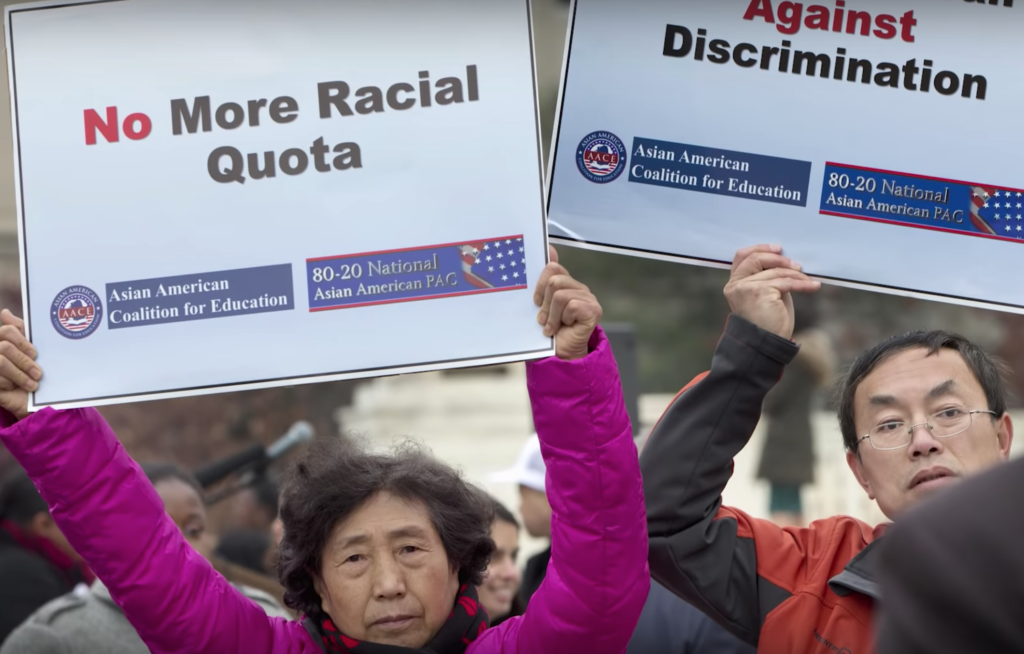
By David Ho
Education is the only way to live a successful and stable life. For myself and many immigrants who grew up idolizing athletes and rappers instead of scientists and scholars, those were the harsh words echoed by our parents so we could come to terms with reality. America told us we could be anything we wanted to be, but our parents missed the memo. We could only be two things, both of which require outstanding grades, significant time in college, and substantial debt. Going to college wasn’t a privilege; it was a requirement.
Many White parents give their children monetary rewards when they perform well in school. Ours rewarded us with, “Why doesn’t the A come with a ‘+’ on the end of it?” This relentless drilling of the importance of education has worked in our favor for the most part. Among the major racial groups in America, Asian Americans have the highest educational qualifications. As of 2010, 42% of Asian Americans have at least a Bachelor’s degree, compared to the national rate of 27%. By 2012, Asian Americans made up 12-18% of the student population in Ivy League schools, much higher than the proportion of Asian Americans (5.6%) in the country. To say Asian Americans and education are joined at the hip would be an understatement.
If education is our ticket to prosperity, then the allegations accusing Harvard of discrimination during the admissions process means we must pay a higher price than everyone else to acquire the same ticket. When the price of that ticket is unclear, in the form of “extra-curricular activities and outstanding qualities,” any possibility of a handicap becomes increasingly debilitating. A spokeswoman for Harvard, Rachael Dane, issued the following statement to The New York Times, in response to requests to comment on such allegations:
“Harvard College does not discriminate against applicants from any group in its admissions processes. We will continue to vigorously defend the right of Harvard, and other universities, to seek the educational benefits that come from a class that is diverse on multiple dimensions.”
Harvard cannot disclose their admissions process, but it’s hard to not be suspicious when a student such as Austin Jia, who graduated with near perfect SAT scores and was on the debate team, in state orchestra, and was tennis captain, was denied by Harvard, Princeton, Columbia, and University of Pennsylvania. Those suspicions turned quickly into logical assumptions when Jia’s classmates with lower scores but a different skin color were accepted by the same institutions. Let’s assume there is a racial quota, and the quota guarantees the student population at Harvard will accurately represent national racial demographics. A racial quota system would then, in theory, promote diversity, providing those with an economic disadvantage from an early age an opportunity to Ivy League education.
I can empathize with this notion on paper. If those of us who were born into an environment with both parents in our lives, an abundance of food, shelter and access to quality schools due to sheer luck, must deal with a handicap in education to balance others’ handicaps in life, then I’ll accept it. Roosevelt once said, “The world will either move together toward unity, and widely shared prosperity – or it will move apart.” If this accelerates progress to bring those economically below us to level playing grounds then so be it.
Unfortunately, this concept lacks in practicality and consistency. If the goal of a racial quota is to reflect national demographics and give underrepresented groups an opportunity, then why isn’t this applied in corporate America? Where is the racial quota to ensure diversity and representation of national demographics in executive boards and committees of major corporations?
According to research conducted by Fortune, 16 Fortune 500 companies shared detailed demographic information, and found 72% of senior executives were white males. Despite our overrepresentation in higher education, why are Asian Americans the least likely group to be promoted into management? If a racial quota ensures African Americans are properly represented in Ivy League schools, then black college graduates shouldn’t be twice as likely to be unemployed, and shouldn’t have a lower chance of receiving a call for an interview than a white person with an identical resume but with a criminal record. Do diversity and equality of opportunity cease to be important after graduation?
If we take one for Team America and accept the Ivy League handicap for the betterment of those less fortunate, why do we have to take another jab in the corporate world? We shouldn’t have arbitrary rules on when we want to support diversity. When one defends a racially based quota system in education but remains silent regarding the lack of diversity in corporate America, it raises suspicions behind the motives of supporting said quota.
NBA coaches often echo the sentiment that consistency is the rarest quality. The absence of consistency also applies in education and beyond. If Asian Americans are told to take an L so others can have a chance to prosper, that L better lead to a higher win percentage for others.
“Education is our ticket to prosperity.” It still haunts me to this day, recalling my parents discouraging my NBA dreams. Ultimately, my parents were right. The closest I’ve ever been to fulfilling my hoop dreams were sitting on the balcony seats of different NBA arenas. NBA teams don’t see race when selling to consumers; we all pay the same price for the same seats. Unfortunately, education isn’t always colorblind, and we’re paying courtside prices for everybody else’s balcony seats.
AsAmNews has Asian America in its heart. We’re an all-volunteer effort of dedicated staff and interns. Check out our Twitter feed and Facebook page for more content. Please consider interning, joining our staff or submitting a story.



